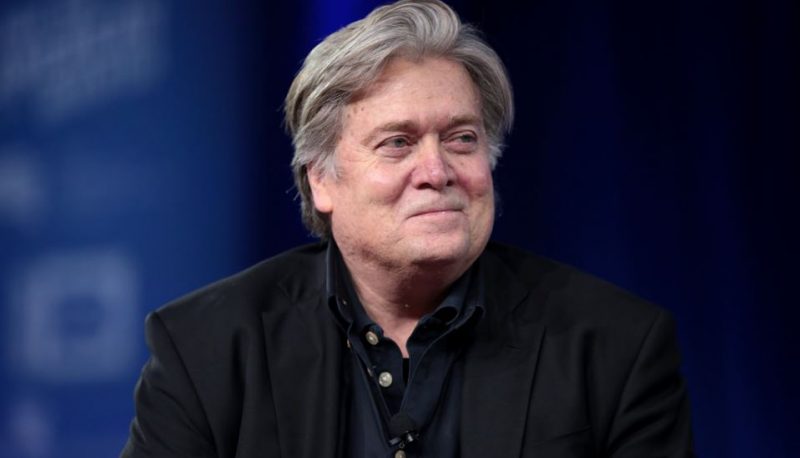Steve Bannon, former President Donald Trump’s onetime chief strategist, was convicted of contempt of Congress Friday for defying a subpoena from the House select committee investigating the Jan. 6, 2021, attack on the U.S. Capitol.
The federal grand jury deliberated for less than three hours before announcing its verdict. Bannon faces the prospect of monetary fines and jail time. U.S. District Judge Carl Nichols scheduled sentencing for Oct. 21.
The House select committee asked Bannon in September of last year to provide documents and to sit for a deposition by Oct. 7, 2021, and Oct. 14, 2021, respectively. The committee did not receive communication from Bannon until after the first deadline had passed at which point Bannon said he would not comply and cited executive privilege, a legal doctrine that can keep certain presidential communications confidential, despite the fact that Bannon had not worked in the White House since 2017.
On the select committee’s recommendation, the Department of Justice decided to pursue charges in November last year. Earlier this month, Bannon said that he would in fact testify to the select committee, claiming that Trump had waived executive privilege. Bannon’s team argued that he should not have to stand trial since he has since agreed to testify—an argument the judge presiding over the case dismissed.
Bannon spent 2020 baselessly alleging voter fraud and working with the so-called Stop the Steal campaign to keep Trump in power. His tireless efforts and outsize influence led former RWW editor Adele Stan to dub him “Insurrectionist in Chief.”
Just days before the 2020 election, Bannon told a group of right-wing activists that Trump would declare victory on election night whether or not the election had been called, according to a recording unveiled by Mother Jones.
“What Trump’s gonna do is just declare victory, right?” Bannon told associates in that Oct. 31, 2020, speech. “He’s gonna declare victory. But that doesn’t mean he’s a winner. He’s just gonna say he’s a winner.”
“More of our people vote early, that count; theirs vote in mail,” Bannon said. “And so they’re going to have a natural disadvantage. And Trump’s going to take advantage of that. That’s our strategy. He’s going to declare himself a winner.”
The recording revealed that Bannon was aware of not just the president’s plan, but his strategy, raising questions about the extent to which Bannon and Trump coordinated to overturn the election results.
On Jan. 5, 2021, Bannon spoke with Trump twice—once in the morning and once in the afternoon, according to White House call logs that were presented during last week’s Jan. 6 hearing. In between those calls, Bannon hosted his show “The War Room,” where he referenced revolution and told viewers, “All hell is going to break loose tomorrow. Just understand this: All hell is going to break loose tomorrow. It’s going to be moving. It’s going to be quick.”
“It’s all converging, and now we’re on the point of attack tomorrow,” Bannon continued. “And all I can say is: Strap in. You have made this happen, and tomorrow it’s game day.”
That same day, Bannon went to the Willard Hotel, a luxury hotel where Trump’s personal lawyer Rudy Giuliani, former New York City police commissioner Bernard Kerirk, and Trump lawyer and coup memo author John Eastman, had set up a “war room”—a command center where they worked on plans to overturn the 2020 election. Bannon was an occasional attendee of meetings held there the week before the insurrection and was also at the hotel on the day of the insurrection.
Other Trump allies present at the hotel included Trump confidant Roger Stone and former national security adviser Mike Flynn. Trump had also asked that his White House chief of staff Mark Meadows attend a Jan. 5 meeting at the Willard Hotel with Giuliani, but Meadows instead said he would call into the meeting, his former aide Cassidy Hutchinson testified to the committee.
Bannon has not yet made a statement to the public about his conviction. He has referred to the Jan. 6 hearings as a “show trial.”
